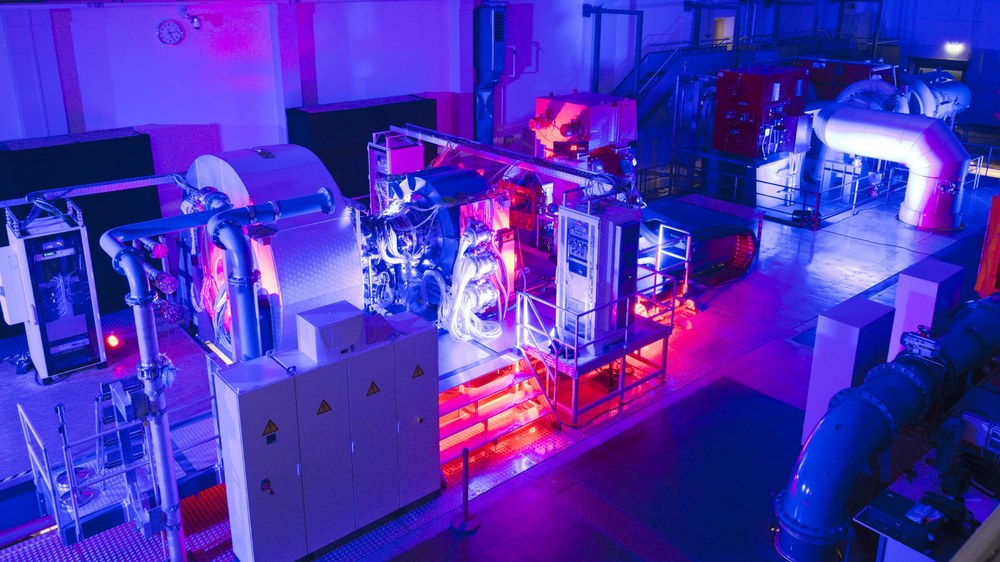Next Generation Turbine
We operate one of the world's most modern and largest turbine test rigs for aerothermodynamic testing of aircraft engines and gas turbines for power generation.

At the DLR site in Göttingen, we specialise in turbines for aircraft engines and their stationary use in power plants. Through our continuous research and development, we create attractive solutions for the aviation and energy sector to increase efficiency and help shorten development times for new products as a basis for a successful energy transition.
From preliminary design to experimentation, we use low-dimensional methods to make turbines even more efficient. We take into account various efficiency influencing factors such as radial clearance and different cooling mechanisms. Detailed flow simulations and optimisations are performed using our in-house CFD framework TRACE. Interdisciplinary collaboration with partners from research and industry plays an important role in the development process. Together, we effectively integrate the interaction effects of different disciplines and see this as a crucial prerequisite for the application-oriented turbine development of tomorrow.
In addition, the broad research landscape at DLR allows us, for example, to transfer our heat transfer methods to other research topics. Comparable principles are used, for example, in heat exchangers for the efficient use of waste heat from fuel cells.
Our research infrastructure enables comprehensive verification, from simplified experiments on flat grid surfaces to multi-stage turbine tests. The most prominent example of our large-scale facilities is one of the world's largest and most powerful turbine test rigs, the Next Generation Turbine. Our aim is to obtain and analyse quality-assured experimental data with the lowest possible measurement uncertainty. To achieve this, we use state-of-the-art pneumatic probes and the latest optical measurement technology in collaboration with the Engine Measurement Systems Department. This precision is the basis for the advancing digitalisation of our field, for which adequate experimental verification is essential.
Design and calculation methods
Experiments carried out on large-scale systems
Heat transfer
